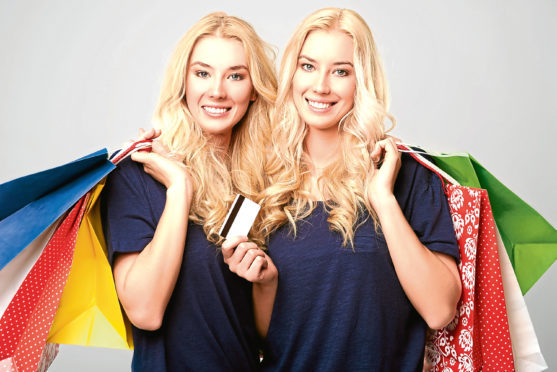The Bank of Brother and Sister is almost as generous as the better-known Bank of Mum and Dad, a survey has found.
Scots who took part in the YouGov poll for Bank of Scotland (BoS) had lent a total of £616million to their brothers and sisters
The How Scotland Lives research showed nearly half of Scots (48%) had lent up to £500 to their siblings.
Nearly one in 10 (7%) had loaned more than £10,000.
BoS also found the Bank of Mum and Dad continues to do brisk business around Scotland.
Nearly a quarter (22%) of people north of the border still borrow large amounts of money from their parents, according to the study.
Almost a fifth (16%) of parents who had lent money said they had given more than £10,000 to their children.
But only 3% of those questioned said they had borrowed a substantial amount of money from their grandparents.
BoS says this could be because they feel embarrassed about making the request, a view supported by the survey finding that half of Scots (47%) who have borrowed money from their family feel guilty about it.
Despite this, BoS said it was “encouraging” that nearly 600,000 adults in Scotland – based on a survey sample of more than 3,000 people aged over 18 – are happy to lend money to family to help them out.
And although Scots continue to borrow from their family, 37% expect they will have to pay the money back at some stage.
BoS network director Ricky Diggins said: “With Scottish siblings loaning substantial amounts of money to their family, it’s encouraging that such a high percentage of borrowers expect to pay their family back.
“To avoid any potential tension, it can be helpful to agree at the time of receiving the money if it’s a gift or if and when the money should be paid back,” added Mr Diggins.
About one-fifth of Scottish borrowers (21%) feel comfortable borrowing money from their family, the study found.
BoS said millennials were most likely to borrow from their parents as two in five people aged 25-34 and 41% of 18 to 24-year-olds admitted to borrowing a substantial amount from the Bank of Mum and Dad.
Scottish parents have lent more than £1.9billion to their children and while large sums are fairly common, nearly a quarter (23%) of parents have loaned smaller amounts up to £500.
One in 10 parents surveyed said they had always expected they would need to lend money to family – and were prepared for it.
Nearly one-sixth of Scottish parents (15%) said they expected their children would need substantial financial support to buy their own home.
A quarter of parents (25%) said they were happy to help their children with the cost of buying a house.
Nearly as many again (22%) were happy to help out with the cost of university.
Of those planning to attend university, 15% said they aimed to fund their studies using money from their family.
